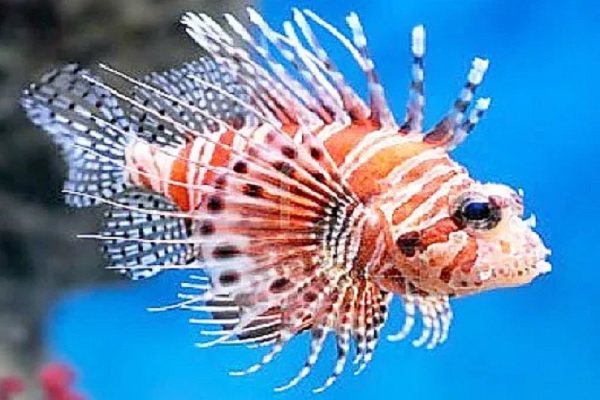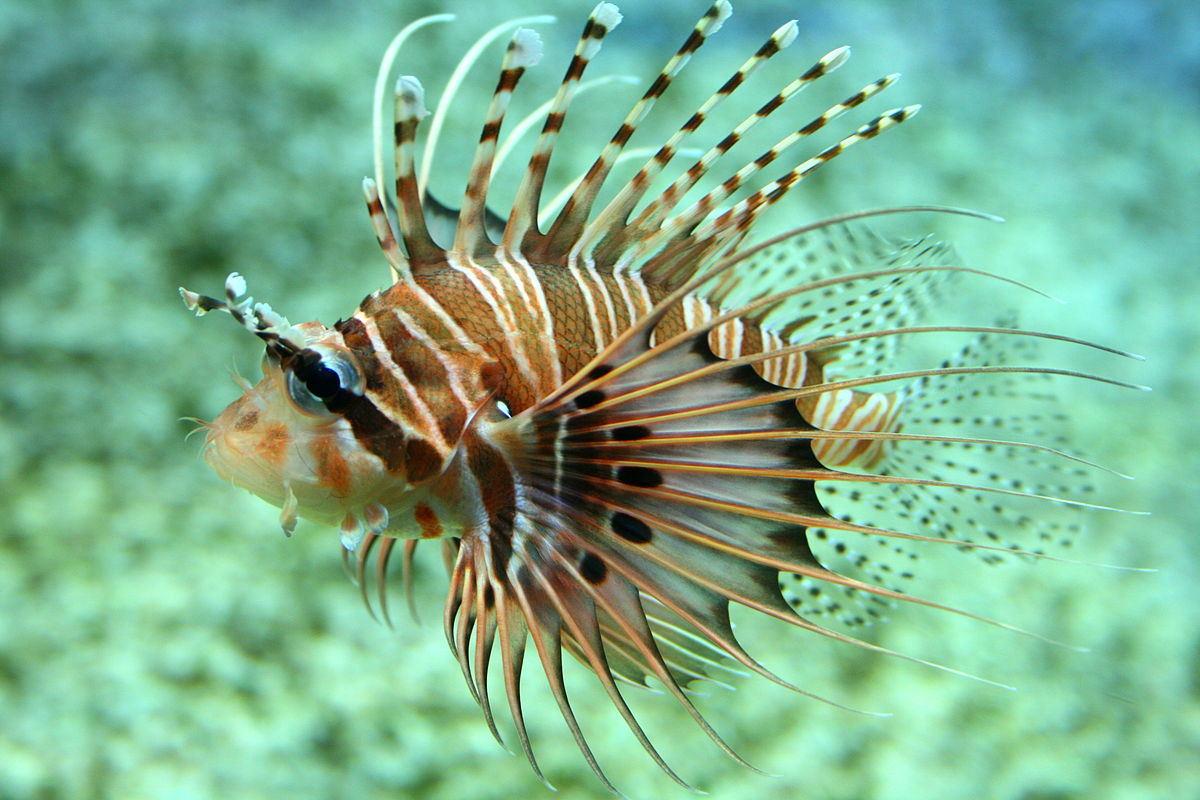WHY EAT LIONFISH?
Even though lionfish are predatorial and consume lots of other fish and shrimp, this study of mercury levels in lionfish from Florida shows that lionfish have less mercury per kilogram of fillet than most other popular fish. In their testing it was found that lionfish on average had just .07 mg/kg of mercury in their meat compared to levels of .91 mg/kg for Black Grouper, .25 mg/kg for Yellowfin Tuna, and 1.51 mg/kg for King Mackerel. While many of the other popular fish are listed by the Florida Department of Health as recommended to only eat once or twice a week due to mercury levels, the lionfish has NO health restrictions due to mercury. This is possibly due to the fact that lionfish, being relatively small, feed on relatively small fish that have not built up a lot of mercury in their systems.
Lionfish are the ultimate sustainable seafood because they are an invasive species and we are trying to reduce their population. We can never ‘over harvest’ lionfish because they are invasive and our goal is to remove as many as possible, which is why ECO-FISH has listed lionfish as one of the ‘best choice’ sustainable seafood.

Recipes
Mealtime is the part of the day that is most full of flavor, color and creativity, the fact that we find ourselves taking care of our eating habits does not mean that we cannot enjoy this delicious moment.
- 6 unds Whole lionfish without head and without scales
- 2 tzas Cherry tomato
- 2 Baby leeks
- 4 tzas Cooked baby potatoes
- 6 Hjs Laurel
- 12 Rdjas Lemon
- 12 Rms Thyme
- 1.1 / 2 tza Purple olives
- 1/2 tza Olive oil
- C / N Salt and pepper
Mealtime is the part of the day that is most full of flavor, color and creativity, the fact that we find ourselves taking care of our eating habits does not mean that we cannot enjoy this delicious moment.
- 1/2 tza Oil
- 1 board of directors Achiote seeds
- 2 tzas. White Big Onion (julienned)
- 1 cdta Tails (green part) of junca onion (very thinly sliced)
- 2 tbsp Tomato paste
- 8 Ripe chonto tomato, skinless, seedless (en brunoisse)
- 1/2 tza Coconut milk
- 6 steaks (already clean) Lionfish, cubed
- To taste Salt and pepper
- 3 Green bananas without skin, in 4 cm pieces
- C/N Vegetable oil
- C/ N Water with crushed garlic and salt
Mealtime is the part of the day that is most full of flavor, color and creativity, the fact that we find ourselves taking care of our eating habits does not mean that we cannot enjoy this delicious moment.
- 250 gr Lionfish in 1 cm cubes
- 1.1 / 2 tza. Coconut milk
- 1/2 tza. Raw Crab Palm in 1 cm cubes
- 1/4 tza. Tomato without skin, without seeds, in 1 cm cubes
- 1/4 tza. Cucumber cucumber without skin, without seeds, in 1 cm cubes
- 1/2 tza. Ripe mango in 1 cm cubes
- 1/2 tza. Ripe pineapple in 1 cm cubes Julienne red onion
- Leaves finely chopped cilantro
- Red chili pepper to taste in brunoisse
- to taste Lemon juice
- to taste Salt


